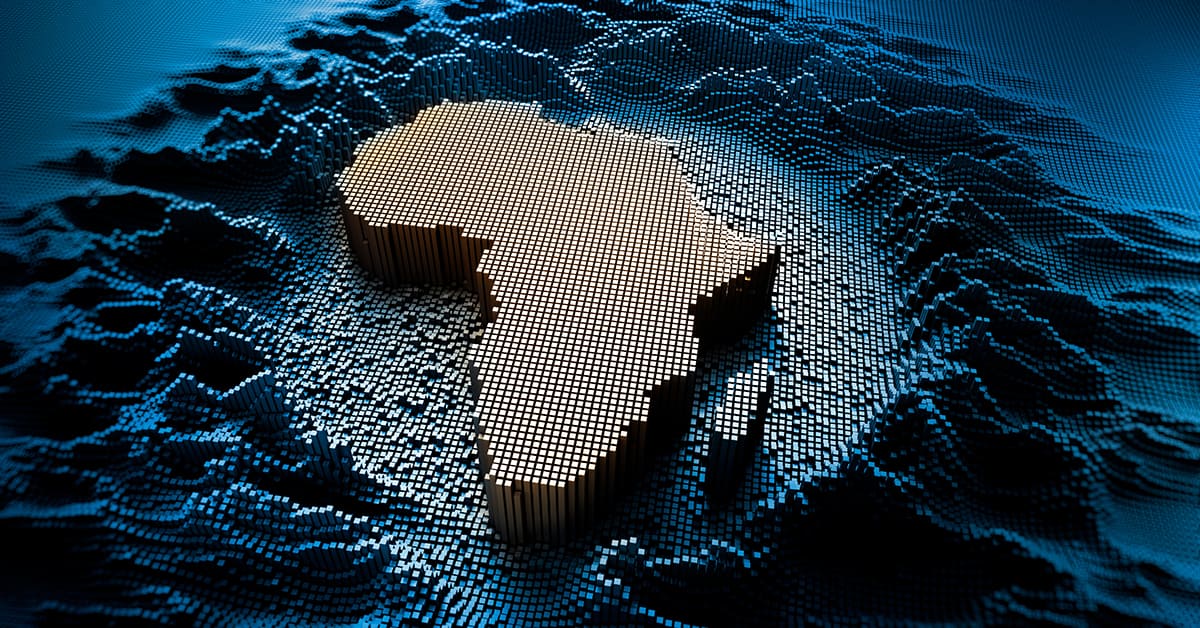A slew of activity to meet Europe’s war-driven thirst for new sources of hydrocarbons could put long-term development at risk.

Hopes had been dwindling that Africa would ever benefit from its vast natural gas reserves—around 13% of the world’s total. Then Russia invaded Ukraine, triggering an urgent need for Europe to reconsider its energy supply lines.
“Europe’s interest offers a real opportunity for African producers,” says Rim Berahab, a senior economist at the Morocco-based Policy Center for the New South. From Algeria, Nigeria, Egypt, Angola and Mozambique to Tanzania, Republic of Congo, Senegal and Mauritania, the focus is on immediate strategies to tap the political windfall.
Yet the urgent scramble to supplant Russia as Europe’s key gas supplier poses a risk if Africa sacrifices the long term for the short. Finding equilibrium among energy security, energy transition and economic development is vital.
For some countries, existing pipelines connected to the European gas grid and liquefied natural gas (LNG) terminals make this a feasible option. Algeria, which notched record exports of 56 billion cubic meters (bcm) in 2021, intends to double production to 100 bcm this year, according to the Energy Ministry.
Egypt saw exports surge in 2022, pushing earnings up. In November, Italian-based giant multinational energy company Eni made the first shipment of LNG from its Coral gas field project in Mozambique. In late January, according to company documents, it signed an $8 billion offshore gas deal in Libya, solidifying its intentions to make substantial investments in the region.
After Russia’s exports were cut by about 80%, with a subsequent significant surge in wholesale prices of electricity and gas, the EU is eager to secure new supply lines to tackle the current crisis and stabilize prices. The rapid response to facilitate export of Africa’s vast gas reserves—estimated at somewhat over 625 trillion cubic feet—will gain the continent’s producers a stronger foothold in Europe.
Political instability remains a challenge. In Mozambique, for instance, French multinational TotalEnergies has yet to lift a force majeure it declared in 2021 on its $20 billion LNG project due to attacks by the Islamic State insurgency, undercutting the commercial viability of the country’s LNG industry.
A December Global Energy Monitor report found that “planned investments across Africa totaling $245 billion for LNG terminals, gas pipelines and power stations represent an enormous stranded-asset risk.” According to the report, “Only $9.7 billion is attributed to projects under construction, while $52.3 billion is attributed to proposed projects,” meaning pressure is on to build oil and gas pipelines, LNG terminals and distribution hubs.
Securing financing for projects remains a major bottleneck, exacerbated by the fact that development of gas and oil fields is on average about 15%-20% more costly in Africa than elsewhere, according to a McKinsey June 2022 report, The Future of African Oil and Gas: Positioning for the Energy Transition.
“Without long-term financing and off-take agreements, these assets are likely to become stranded in the very near future once the European energy crisis abates,” explains the Global Energy Monitor report. The group predicts that Europe’s gas demand is likely to decline by 2030 as renewable sourcing grows.
“The rush for African gas is a temporary measure that will likely leave countries financially burdened by infrastructure that will not be needed,” notes Deborah Ramalope, the head of climate policy analysis at Berlin-based Climate Analytics.



